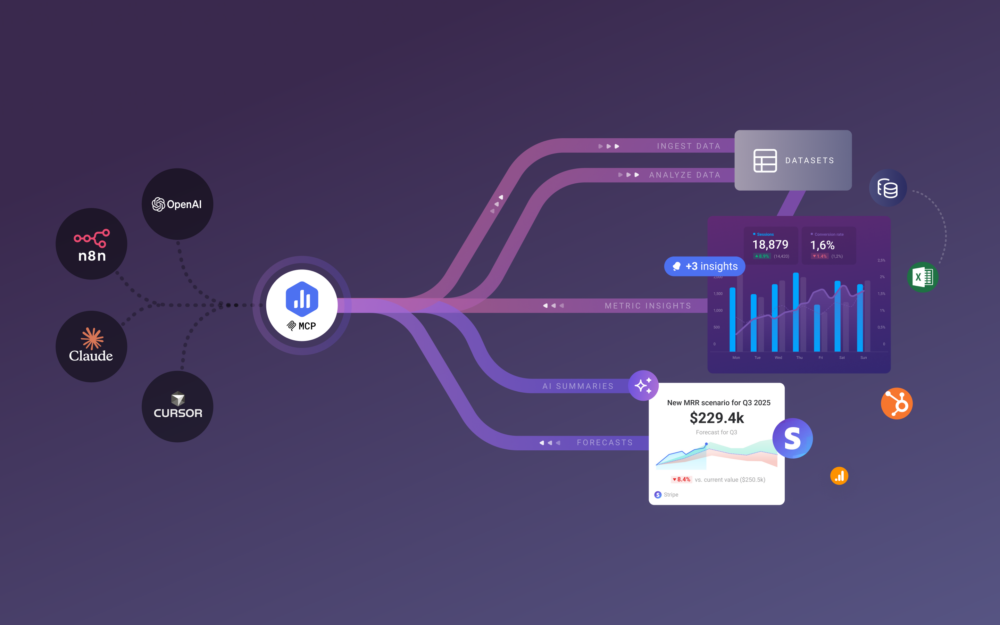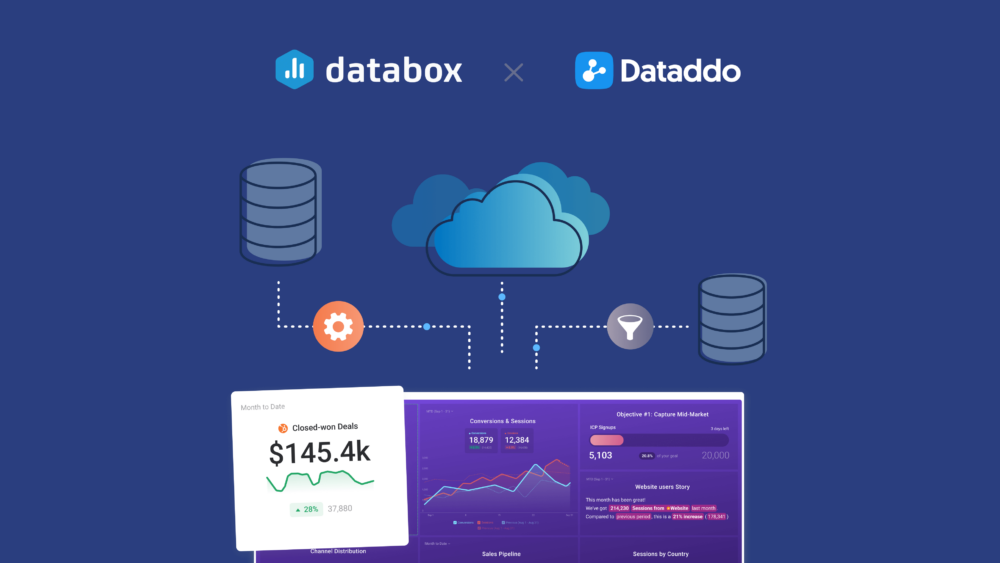Table of contents
Hi there, HubSpot Services users 👋
Today, we’re excited to announce our new integration with HubSpot Services, which will allow you to track and visualize the performance of your ticket management and team productivity in Databox.
With this new integration, you’ll be able to monitor your tickets, track the progress of your support team, see which pipeline results in the most tickets, measure the ratio between closed and opened tickets by every team member, and more.
You can also use the Goals feature to track and visualize your progress toward specific response targets to ensure you’re staying on track. You can even automate Alerts so that you’re notified whenever important milestones are reached.
At launch, there are 19 default HubSpot Service Metrics available. This means that there are 19 pre-built visualizations for some of the most popular metrics available in HubSpot Services.
You also have available 16 calculated metrics. These are custom metrics commonly created by HubSpot Services users that we’ve created using Data Calculations. These are also pre-built, meaning all you need to do is drag-and-drop them into your dashboard to visualize your performance. No code or design necessary.
In addition to having the ability to quickly drag-and-drop your most important HubSpot Services metrics into your dashboards, you can easily customize your dashboards to include data from other integrations that your business relies on.
To help you start tracking your HubSpot Services data quickly, let me show you how to use the pre-built HubSpot Services dashboard template.
Getting started with a HubSpot Services template
Want a quick way to visualize your ticket overview with HubSpot Services?
First, download this HubSpot Services Tickets Overview template.
Next, you’ll be prompted to connect your HubSpot Services account.
Then, voila! Watch as your dashboard automatically populates with all of your ticket management KPIs.

How to create custom dashboards with HubSpot Services
In the dashboard designer, search for the HubSpot Services integration on the left side menu.

From there, you’ll be prompted to connect your HubSpot Services account (if you haven’t already).
Now, you’ll see a menu consisting of 19 default HubSpot Services metrics, as well as 16 calculated metrics (these are custom metrics commonly used by HubSpot Services users created using Data Calculations). All of which are available to drag-and-drop directly into your dashboard.

Drag and drop the desired metric anywhere you’d like in your dashboard. You can resize these Datablocks or even rearrange them once you’ve added more.

Then, your HubSpot Services data will automatically populate.

Now, if you’d like to add KPIs from other tools into this dashboard to create a comprehensive view of performance across your team, simply click back into the left side menu to search for the desired integrations you’d like to pull from.
Getting started with HubSpot Services + Databox
Existing users can view all of the available HubSpot Services metrics here or download the Tickets Overview template here.
New to Databox? You can create a free-forever account here.













